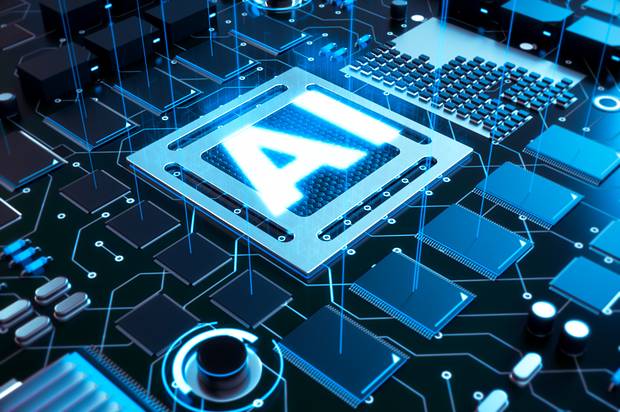
The AI Chip Revolution: How New Hardware Is Transforming AI
Have you noticed how quickly AI seems to be progressing these days? Just a few years ago, technologies like facial recognition, real-time language translation, and self-driving cars seemed like science fiction. Now they're becoming a reality. What's powering this AI revolution? In a word: hardware.
Advancements in chip and computing technology have enabled huge leaps forward in AI. New chips are delivering massive increases in processing power, allowing AI systems to churn through huge amounts of data to uncover complex patterns and insights. Specialized AI chips are optimized specifically for the types of calculations required for artificial neural networks and deep learning. The results are AI systems that are faster, more efficient, and able to take on more complex tasks than ever before.
AI Chips: The Hardware Powering Today's AI
Without powerful yet efficient chips, AI wouldn't have advanced nearly as quickly.
NVIDIA's graphics processing units or GPUs have enabled many AI milestones, from Deep Blue beating Kasparov at chess to DeepMind's AlphaGo defeating the world Go champion. NVIDIA invested heavily in their Clara platform for healthcare and Isaac for robotics. Their latest A100 GPU delivers a whopping 312 teraflops of performance for large-scale AI workloads.
Low-power chips are essential for AI on the edge, like in autonomous vehicles. ARM dominates this space, which is why NVIDIA acquired them. ARM's energy-efficient designs are in most smartphones and IoT devices. NVIDIA plans to combine its GPU and ARM expertise to build the "world's premier AI computing platform."
Semiconductor companies are ramping up production of chips purpose-built for AI. Intel's Habana Labs released the Gaudi and Greco AI chips, and Graphcore IPU promises 100 times the performance of GPUs for certain AI models. CEOs of Apple, Amazon, Google, and Microsoft joined forces to create the MLCommons benchmark to spur chip innovation.
The AI chip revolution is well underway. Continued progress in AI hardware will drive further breakthroughs in fields like computer vision, natural language processing, and robotics.
GPUs, TPUs, and Neuromorphic Chips: A New Generation of AI Hardware
AI chips are transforming what's possible in artificial intelligence. GPUs, originally designed for graphics processing, have dominated the AI hardware market. Newer chips like TPUs (Tensor Processing Units) and NPUs (Neural Processing Units) are specialized for machine learning. TPUs, developed by Google, are optimized for training and running neural networks. NPUs are found in devices like smartphones to enable features like facial recognition and smart assistants.
Neuromorphic chips take a different approach. They're inspired by the human brain and designed to enable low-power, high-performance AI computing. Chips from companies like Intel emulate the way neurons communicate, enabling AI systems that perceive and understand the world more like humans.
This new generation of AI chips is enabling massive improvements in AI performance and efficiency. AI that once required server farms can now run on smartphones and embedded devices. Chips tuned for neural networks and deep learning have accelerated progress in fields like computer vision, natural language processing, and robotics.
The Future of AI Chips: Faster, Cheaper, More Efficient
The future of AI chips is blazing fast, remarkably cheap, and incredibly efficient. Semiconductor companies are designing better chips at record speeds, lower costs, and higher performance than ever before.
Faster and More Powerful
New AI chips are enabling rapid progress in AI. Stanford engineers created an efficient AI chip that brings AI power to small devices. State-of-the-art AI chips outperform CPUs for AI tasks, handling complex neural networks much faster. These chips provide the processing power needed for real-time AI in smart devices and autonomous systems.
Cheaper and More Accessible
AI chips are becoming more affordable, bringing AI to the masses. Companies are producing low-cost but high-performance AI chips, making AI more accessible to individuals and small businesses. As costs decrease over time, AI chips may become ubiquitous in all types of technology.
Greener and More Efficient
New AI chips are extremely energy efficient, using a fraction of the power of traditional CPUs. This efficiency makes AI more environmentally friendly and practical for battery-powered devices. Energy-efficient AI chips will enable an exciting new wave of AI applications that were previously impractical due to power requirements and costs.
The future of AI will be shaped by continued progress in AI chips and hardware. Faster, cheaper, greener, and more efficient chips will accelerate AI advancement, drive discoveries, and power the next generation of intelligent systems.
Most popular AI chips right now
Right now, some of the most advanced AI chips powering the AI revolution include:
Nvidia's A100 GPU is currently the most important and widely used AI chip in the world. The A100 can perform up to 20 times faster than its predecessor for AI training and inference. Many major tech companies like Google, Amazon, and Microsoft use the A100 to power their AI models and services.
Google's tensor processing unit (TPU) is considered a credible alternative to Nvidia GPUs. Google developed the TPU specifically for neural network machine learning and has deployed thousands of TPUs in its data centers. The TPU is optimized for TensorFlow, Google's open-source AI framework.
Other leading AI chip producers include:
Intel, which makes CPUs, GPUs, and dedicated AI chips for inference and training.
AMD, which produces GPUs and CPUs that can also be used for AI.
Startups like Graph Core, Cerebras Systems, and Sambanova Systems
The rapid progress in AI hardware, especially purpose-built AI chips, is enabling huge leaps forward in AI performance and efficiency.
Conclusion
AI chips and hardware are revolutionizing the field of artificial intelligence and shaping its future. New AI chips are enabling massive improvements in AI performance, efficiency, and capability. Custom AI chips have given rise to breakthroughs in computer vision, natural language processing, robotics, and more. The pace of progress is truly mind-boggling. With specialized AI hardware advancing rapidly and discoveries emerging constantly, AI is poised to transform technology and society in ways we can only begin to imagine.
